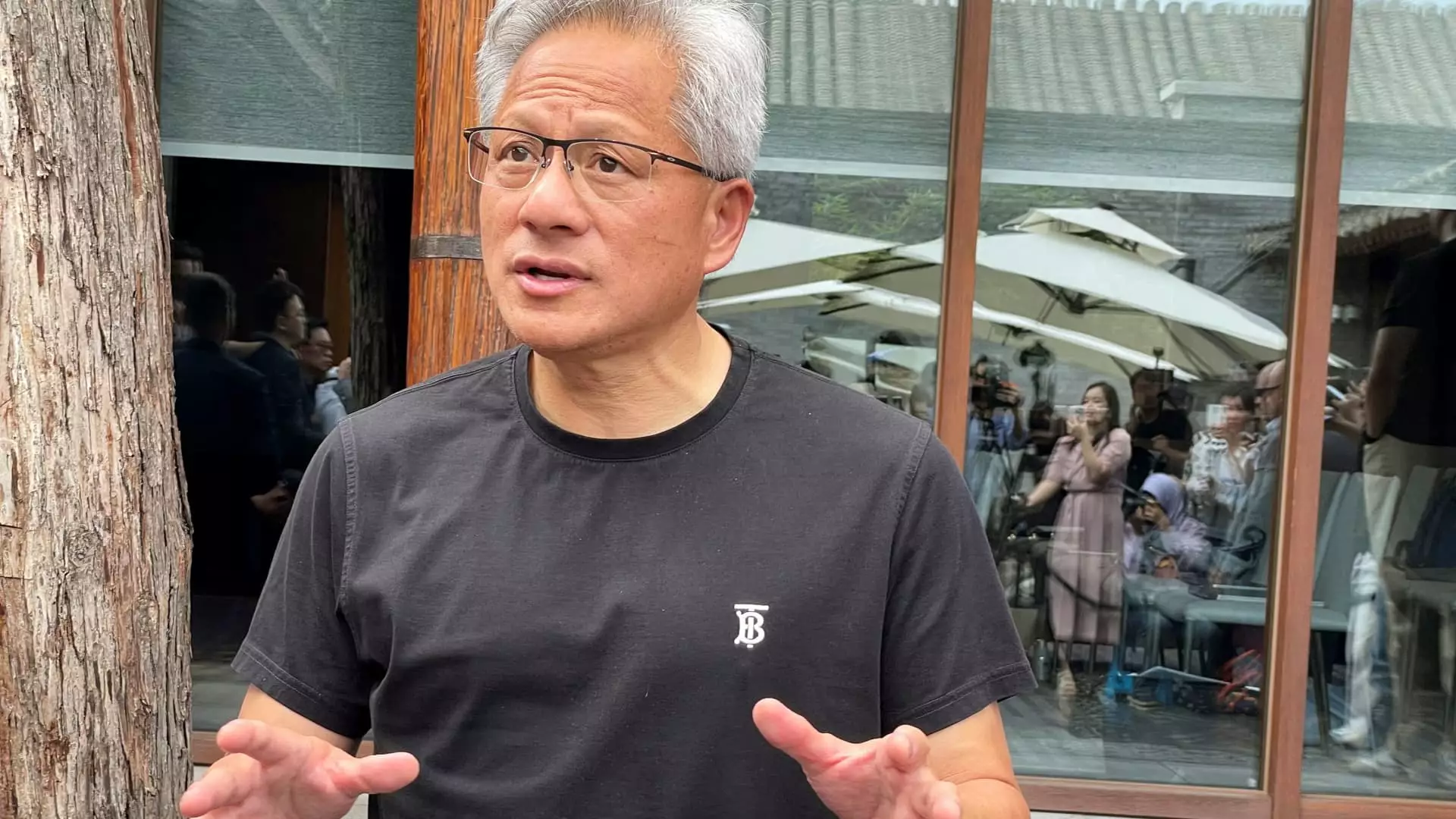In a landscape where technological sovereignty is increasingly politicized, Nvidia’s assertion that its data center GPUs are free of “kill switches” and “backdoors” echoes a fundamental belief: the innovation sector must remain relatively free from overbearing governmental interference. While China’s cyberspace regulators claim vulnerabilities and potential security risks, Nvidia’s emphatic denial and public stance serve to uphold core principles of free enterprise, security, and technological leadership. Critically scrutinizing this response reveals a broader worldview that champions resilient markets over governmental manipulations disguised as security measures.
The company’s refusal to accept the fiction of “hidden backdoors” aligns with a center-right ideology emphasizing individual corporate responsibility and the importance of open markets. Instead of conceding defenselessness in the face of accusations, Nvidia fortifies the importance of industry-led cybersecurity standards. From a free-market perspective, the presence of a “kill switch”—if it existed—would pose a significant threat to trust and innovation. Therefore, Nvidia’s stance is not merely defensive but an affirmation of a belief: trustworthy hardware enhances security without relying on government-imposed vulnerabilities that could be exploited by malicious actors or oppressive regimes.
Geopolitical Tensions as a Threat to Innovation
The ongoing tug-of-war between the US and China complicates the need for technological innovation. The Chinese government’s concerns about backdoors echo a broader suspicion of Western tech firms, which are often perceived as tools of US geopolitical interests. Nvidia’s refusal to embed such hardware “kill switches” reflects a nuanced view: that geopolitics should not override the principles of secure and dependable technology. Instead, it should reinforce the need for American companies to lead on security standards voluntarily—a belief rooted in a confidence in the U.S. innovation ecosystem.
U.S. export controls on Nvidia’s chips, a response to national security fears, exemplify how government intervention can distort markets and stifle innovation. Yet, Nvidia’s CEO Jensen Huang’s vision—that these chips become the standard worldwide—resonates with a pragmatic center-right view: American-led technology can and should set the global benchmark. Export restrictions, if not carefully balanced, threaten to fragment the market and inhibit free competition based on quality and security. The company’s push to maintain its global influence demonstrates that controlled protectionism, or selective sanctions, threaten innovation by limiting access to cutting-edge technology.
The Myth of the “Backdoor” and the Overreach of Regulation
The discourse around backdoors often veers into sensationalism, where claims undermine the very purpose of secure technological development. Technologically savvy and security-conscious experts agree that secret vulnerabilities—if they exist—are dangerous; however, to assume that companies like Nvidia would incorporate them knowingly is simplistic and dangerously paranoid. Blaming Nvidia for potential vulnerabilities misreads the realities of hardware engineering: security hinges more on transparency, testing, and robust standards than on the existence of concealed functions.
Furthermore, regulatory attacks on companies such as Nvidia threaten to undermine the delicate balance of innovation and security. Overregulation can discourage R&D investments, especially when the federal government’s attempts appear more motivated by geopolitical fears than by actual security needs. Nvidia’s stance sends a clear message: trust in industry-led security practices—not government mandates that could open the door to abuses or procedural loopholes—is the best path to safeguarding innovation and national competitiveness.
Innovation as a Weapon Against Authoritarian Overreach
In the broader context, Nvidia’s pushback highlights an essential truth: technological leadership is pivotal in countering authoritarian tendencies. By refusing to accept the notion of “backdoors,” Nvidia champions a model where innovation and security are intertwined without sacrificing openness or trust. This perspective advocates for a balanced approach: leveraging the strengths of free-market enterprise, ensuring robust cybersecurity, and resisting the temptation of government overreach.
The emphasis on “hardwiring” security features in hardware—rather than concealed backdoors—reflects a belief in accountability rather than covert control. When companies refuse to embed hidden functionalities, they advocate for transparency, which is vital for maintaining consumer trust. Ultimately, Nvidia’s unwavering stance against the idea of hardware kill switches aligns with the center-right view that resilient, secure, and free-market driven technological ecosystems are essential for a prosperous and secure future. It champions innovation as the most effective safeguard against both foreign threats and domestic overreach.

